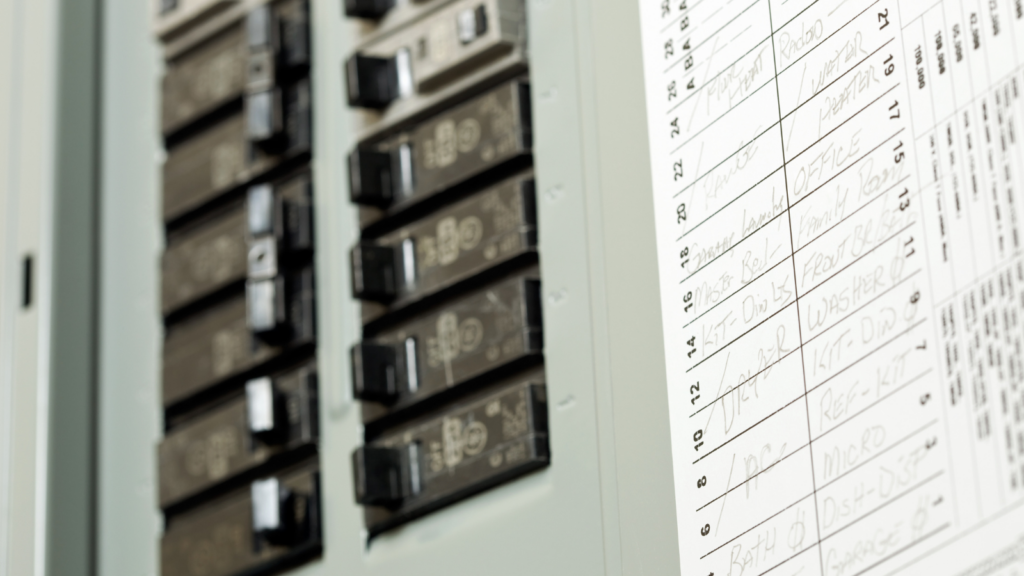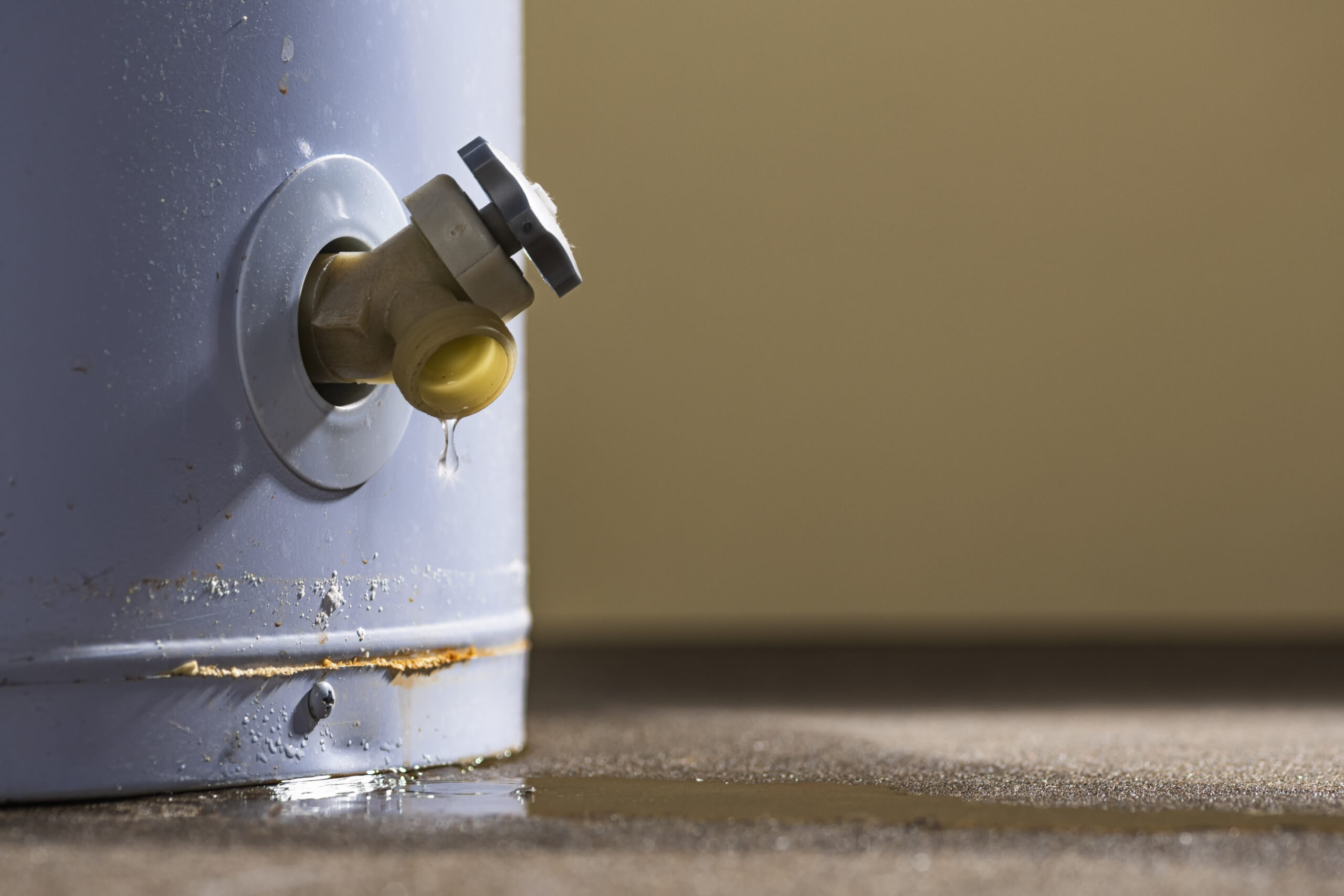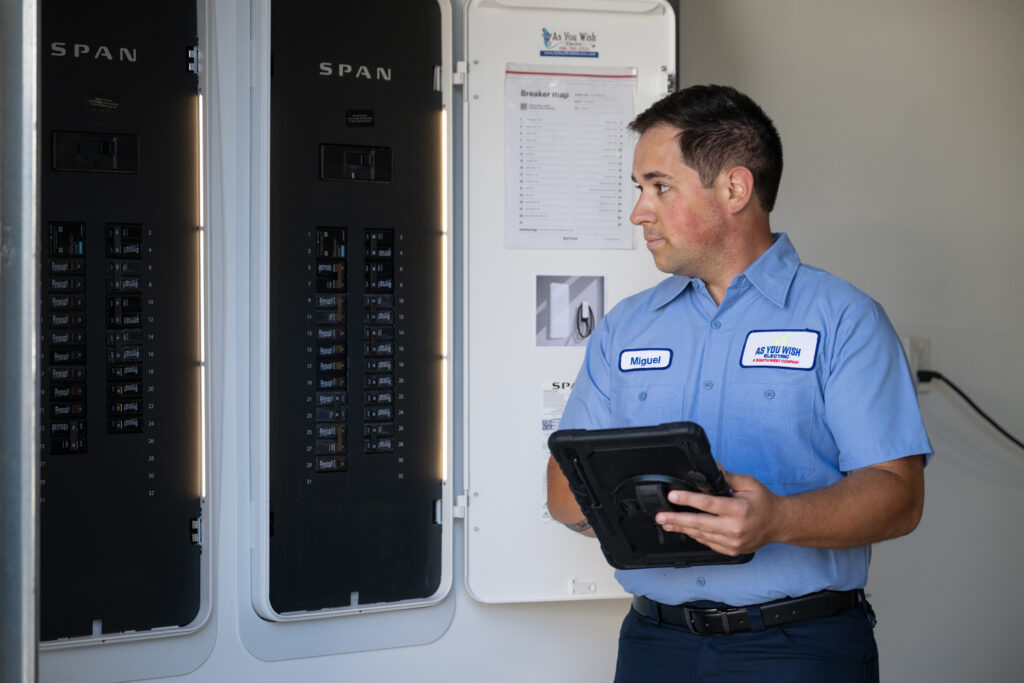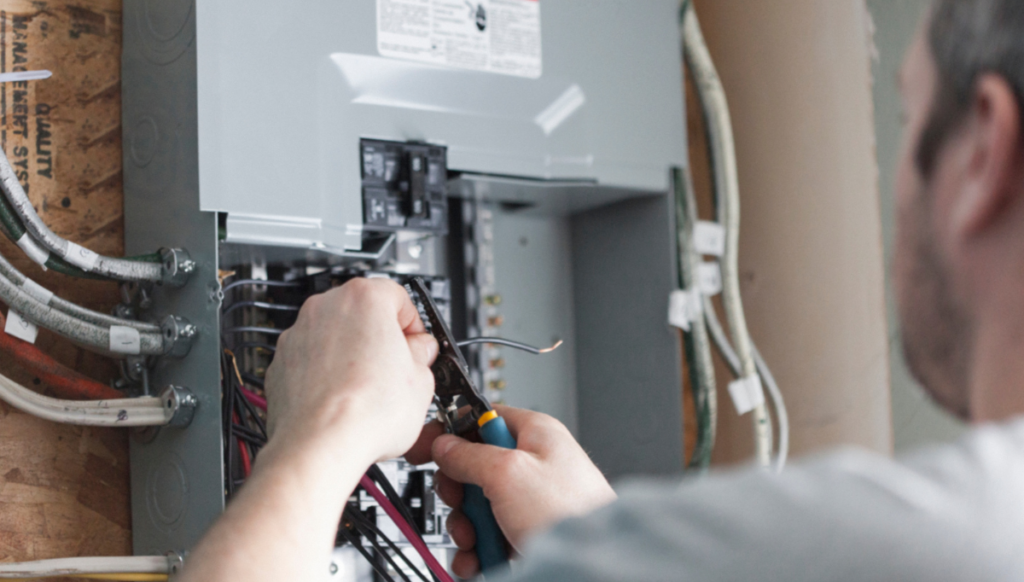Understanding Electrical Panels & Their Role in Your Home

An electrical panel is a metal box built into a wall, typically found in your garage or basement. The panel features a distribution board made up of several components responsible for distributing electricity to different parts of your home.
Electrical panels ensure your appliances always operate efficiently and safely by maintaining the electrical current; if too much electricity runs through the panel, it will automatically shut off.
Every electrical panel must adhere to the National Electrical Code (NEC) for safe and proper installation. As the central hub of your home’s electrical system, it’s crucial that your panel complies with the latest 2023 NEC standards to mitigate hazards and enhance energy efficiency. Keeping your panel up to code ensures protection against potential risks and optimizes system performance.
Here, we take an in-depth look at the functions of electrical panels, some common issues you may face, and how to properly maintain your system.
Components of Electrical Panels
Electrical panels feature a set of components, each with a different task in maintaining your home’s electrical current. These components include:
- Main breaker or disconnect: The main breaker or disconnect is used to cut off power to your home, especially during an emergency such as an electrical fire or electrocution.
- Circuit breakers: Circuit breakers are safety devices within your panel designed to protect circuits from excessive electrical currents by interrupting the flow of electricity.
- Bus bars: These are metal bars used to carry electricity from the supply point to the output circuit.
- Grounding system: Grounding systems provide a path from a circuit to the earth’s surface, ensuring excess electrical current doesn’t flow through circuits and your appliances.
Common Issues With Electrical Panels
There are some electrical panel issues that homeowners need to watch out for so repairs can be performed as needed. This will make sure your panel is working as intended and will keep you and your appliances safe from harm.
Some common issues include:
- Overloaded circuits: When too much electricity flows through your circuits, they will overload. This typically happens when you don’t have enough outlet space.
- Outdated or faulty breakers: If your breakers are outdated or faulty, they’re more prone to trip, resulting in flickering lights, electrical shocks, or power outages.
- Corrosion and damage: Corrosion might be due to moisture entering the system, which can pose great danger if not addressed. Corrosion and other physical damage may also indicate your system is too worn down to function properly.
- Insufficient capacity: If your panel doesn’t have sufficient capacity, it won’t be equipped to handle the number of appliances you’re trying to power.
Maintenance & Upgrades
Maintenance is important for all home appliances, and your electrical panel is no exception. Hiring a professional for regular inspections and electrical panel maintenance will ensure all components of your system are operating as they should, which will keep your home well-powered and better protected from electrical hazards.
If your electrical panel is over 25 years old, frequently trips, or shows physical signs of damage, it’s time to consider a professional electrical panel upgrade. Remember: Electrical work should never be a DIY project.
Troubleshooting Minor Issues
There are instances where you can easily troubleshoot and correct minor issues. If your breaker trips, locate the correct circuit and flip the switch to restore power. If this doesn’t work, try unplugging all appliances connected to the circuit and flip the switch again.
If your lights are flickering, check first to see if there’s an issue with the bulbs. The problem may also be due to faulty wiring, in which case a professional is needed for repairs. Watch out for burning odors, outlets that are warm to the touch, sparks, and more potentially hazardous issues with your electricity.
As You Wish Electric, Plumbing, Heating & Air is here to provide top-notch electrical services. When you’re ready to schedule an appointment, contact our team.





